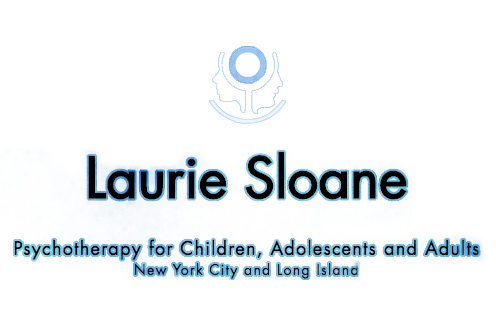Laurie Sloane Licensed Clinical Social Worker
 Over the past 30 years, a combination of diverse professional experiences and extensive training have made me the therapist I am today. In addition to a Master’s Degree in Social Work, I have participated in continuing education courses and seminars to ensure that I am incorporating the latest in psychoanalysis into treatment plans.
Over the past 30 years, a combination of diverse professional experiences and extensive training have made me the therapist I am today. In addition to a Master’s Degree in Social Work, I have participated in continuing education courses and seminars to ensure that I am incorporating the latest in psychoanalysis into treatment plans.
I joined the faculty of the Psychoanalytic Psychotherapy Study Center (PPSC), a post-graduate training institute, and served as the Executive Director for 10 years. During my tenure, I taught and supervised candidates, developed an internship program for graduate students, and worked to establish guidelines for training and licensure in New York. My expertise is broad and far-reaching.
Current Areas of Specialty
Therapy for Young Adults
Of late, more attention has been focused on the well-being of anxious, depressed and suicidal students on college campuses. I have worked with many students trying to adjust to life away from home. The social and academic pressures of college can bring about the emergence of major mental illness and addiction that needs to be addressed with the proper treatment. In addition to individual sessions, I also offer group treatment to college students and young adults.
Therapy for Women of All Ages
I have extensive experience in counseling women of all ages who suffer from eating disorders. Today, there are a variety of treatments available; I’m able to help navigate through the options and figure out which will work best on a case by case basis.
As baby boomers are aging, they are learning that menopause no longer spells the end. Life after 65 continues to be an important, yet often overlooked part of adult development. I’m able to offer support in either individual or group therapy sessions for women navigating midlife and beyond.
Therapy for Veterans
I am affiliated with Here to Help Military and Families, a Long Island group that offers free counseling to returning veterans and their families. I offer a holistic approach to treatment; for both veterans returning from combat, suffering from the effects of trauma and PTSD, as well as their families, who are struggling to understand how difficult reentry into civilian life can be.
What Can You Gain from Therapy?
Connection to others
Over the past 30 years, I’ve learned a lot about relationships and the value in sharing our thoughts and feelings with friends and partners. Knowing we are being listened to, valued and understood is crucial to emotional wellbeing.
Hope for the future
Therapy is a process. Though there is often no simple, quick solution, it provides a safe space to explore emotions, thoughts, and actions in an in-depth and meaningful way, to eventually bring about change.
Growth and change
Through continued treatment, therapy can be an incredibly powerful tool in helping to significantly improve your quality of life and outlook.

